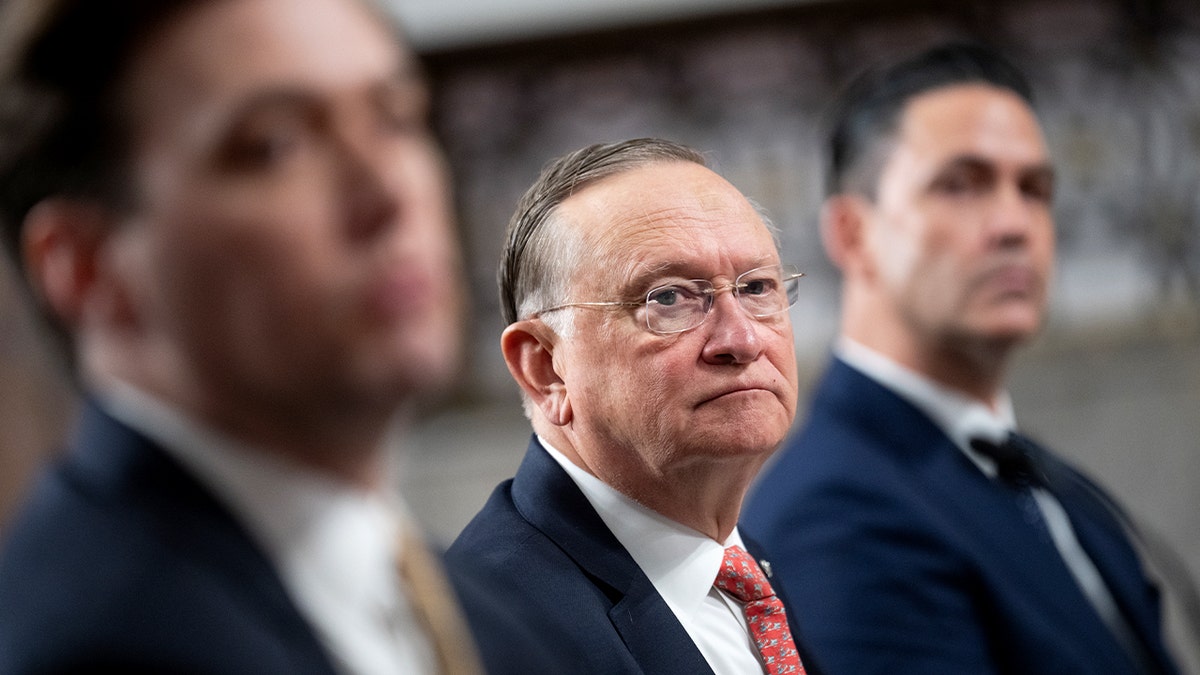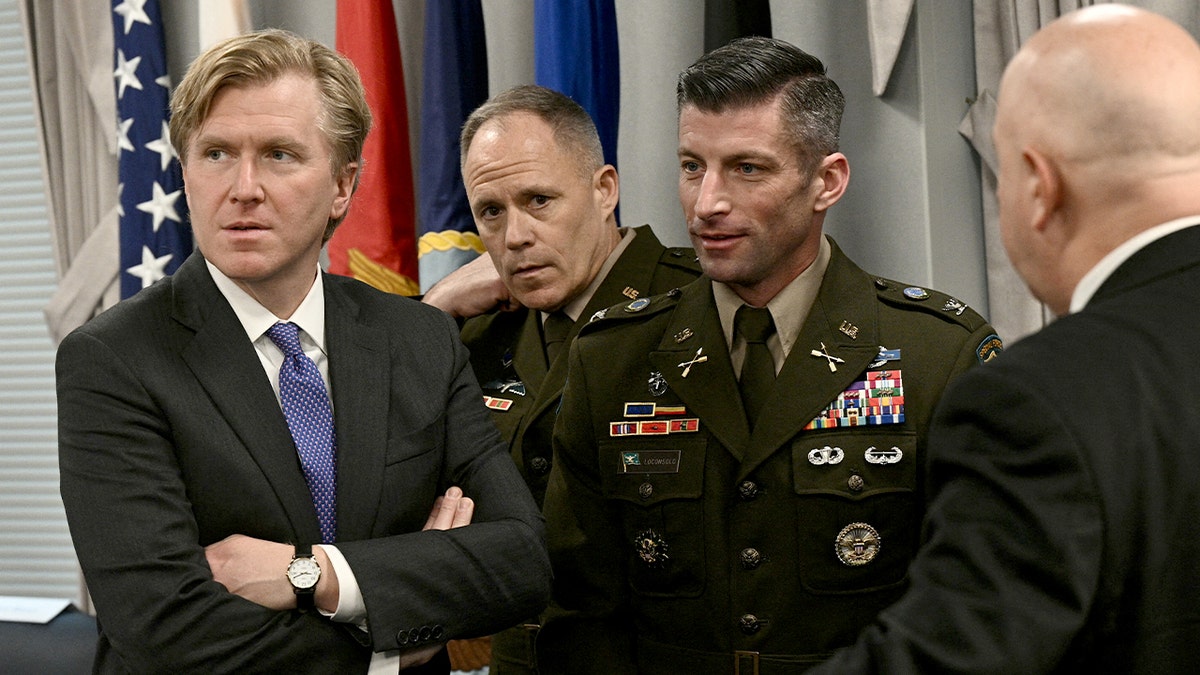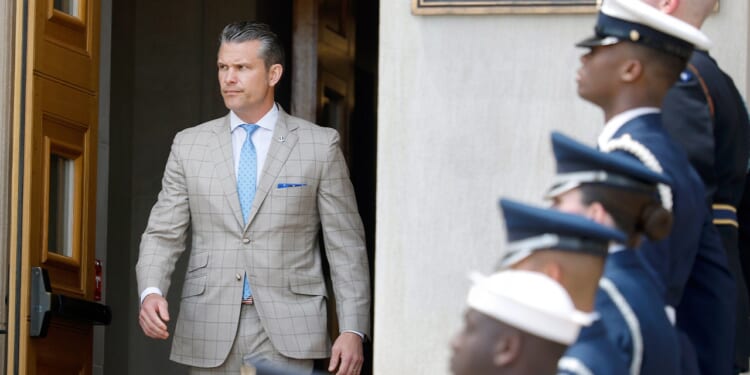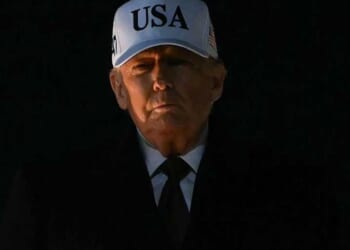NEWYou can now listen to Fox News articles!
Republican and Democratic lawmakers used a routine Senate Armed Services Committee nomination hearing Tuesday to air their frustrations with the Pentagon over what they described as its lack of communication with Congress on key policy decisions and national security issues.
The hearing focused on three key nominations — two for the Department of War, Austin Dahmer and Robert Kadlec, and one for the Air Force, Michael J. Borders, Jr.
Senate Armed Services Committee Chair Roger Wicker, R-Miss., introduced the three nominees, underscoring the significance of the roles they could assume.
Wicker noted that Dahmer, nominated to be assistant secretary of war for strategy, plans and capabilities, would oversee the Pentagon’s global posture, guide implementation of the National Defense Strategy (NDS), and help develop plans to implement President Donald Trump’s foreign policy agenda.
SENATE ADVANCES 2026 DEFENSE BILL AFTER WEEKS OF DELAY AS SHUTDOWN DRAGS ON

Sen. Roger Wicker, R-Miss., speaks to the press on the transparency from the Department of Defense regarding the health of Defense Secretary Lloyd Austin on January 11, 2024 in Washington, DC. (Anna Rose Layden/Getty Images)
“I make this point in particular because I’ve noticed an unsettling trend this year. At times, the Pentagon officials have pursued policies that are not in accord with President Trump’s orders or seem uncoordinated within the administration,” he said.
The top Republican pointed to the Pentagon’s announcement last week that it would discontinue the rotational deployment of an infantry brigade combat team in Romania, arguing it appeared at odds with President Trump’s remarks that U.S. troops would not be withdrawn from Europe.

Soldiers of the U.S. Army take part in the military and civilian parade for National Day 2025 at Place des Palais – Paleizenplein on July 21, 2025, in Brussels, Belgium.
A press release from U.S. Army Europe and Africa said the discontinuation of the brigade team is “not an American withdrawal from Europe or a signal of lessened commitment to NATO and Article 5.”
PENTAGON SCALES BACK TROOPS FROM NATO EASTERN FLANK, DENIES AMERICAN WITHDRAWAL FROM EUROPE
“Rather this is a positive sign of increased European capability and responsibility. Our NATO allies are meeting President Trump’s call to take primary responsibility for the conventional defense of Europe,” the press release read in part. “This force posture adjustment will not change the security environment in Europe.”
Wicker added that members were struggling to receive information from the Pentagon’s policy office and haven’t been able to consult with it “in a meaningful way.”
War Secretary Pete Hegseth and Deputy War Secretary Steve Feinberg directed Pentagon personnel to coordinate all interactions with Congress through the department’s central legislative affairs office, according to an Oct. 15 memo obtained by Breaking Defense.

U.S. Secretary of War Pete Hegseth stands at attention during an honor cordon for Canadian National Defense Minister David McGuinty at the Pentagon on September 22, 2025, in Arlington, Virginia. (Anna Moneymaker/Getty)
HEGSETH ORDERS HUNDREDS OF MILITARY COMMANDERS TO VIRGINIA FOR UNPRECEDENTED MEETING
The move is seen by some lawmakers as an effort to limit information sharing with Congress, though the Pentagon says it is intended to improve coordination and transparency in its communications with lawmakers.
“The Department intends to improve accuracy and responsiveness in communicating with the Congress to facilitate increased transparency. This review is for processes internal to the Department and does not change how or from whom Congress receives information,” said Chief Pentagon spokesman Sean Parnell in a statement to Breaking Defense.
Sen. Tom Cotton, R-Ark., pressed Dahmer at the hearing on what he viewed as a series of Pentagon policy missteps, pointing to a March pause in U.S. aid to Ukraine, a canceled June meeting between Japanese and U.S. officials and a review of the AUKUS agreement.

Nominees Robert P. Kadlec (center), Austin Dahmer (left), and Michael Borders testify during their Senate Armed Services Committee confirmation hearing in the Dirksen Senate Office Building on Tuesday, November 4, 2025. (Tom Williams/CQ-Roll Call, Inc via Getty Images)
“I understand that media reports can be wrong, believe me, but it just seems like there’s this pigpen-like mess coming out of a policy shop that you don’t see from, say, intel and security and acquisition and sustainment,” Cotton said.
Sen. Jacky Rosen, D-Nev., said Congress wasn’t being treated as an “Article 1 co-equal branch.”
“We see no sense of urgency to relate to Congress. We see no sense of urgency to connect with Congress pre-publication of the NDS,” she explained.
Senate Armed Services Committee ranking member Jack Reed, D-R.I., also criticized Dahmer for seeming to have a “veil of ignorance” about key events and decisions, despite performing the duties of deputy undersecretary of war since March.

U.S. Under Secretary of Defense for Policy Elbridge Colby (L) and other members of military leadership wait for the start of a meeting with Peru’s Foreign Affairs Minister Elmer Schialer and Defense Minister Walter Astudillo at the Pentagon in Washington, D.C., on May 5, 2025. (Brendan Smialowski/AFP via Getty Images)
Sen. Dan Sullivan, R-Alaska, called out top Pentagon policy official Elbridge Colby for being difficult to reach before asking Dahmer, Kadlec and Borders Jr. to commit to returning senators’ calls the same day if confirmed.
“The guy you’re going to work for [Colby] has been really bad on this. The worst in the administration,” Sullivan said, noting it was easier to get in touch with Hegseth and Trump. “Man, I can’t even get a response and we’re on your team.”
CLICK HERE TO DOWNLOAD THE FOX NEWS APP
Pentagon Press Secretary Kingsley Wilson told Fox News Digital in a statement: “All DoW components engage with Congress on a very regular basis, in line with guidance established by the Secretary to ensure that we are being as responsive and transparent as possible. The Policy organization alone, under the leadership of Under Secretary Colby, has briefed Congress dozens of times, in both classified and unclassified settings, in addition to other meetings. The Department values its relationship with the Hill, and we look forward to continuing to work collaboratively with Congress to support a robust national defense.”


















